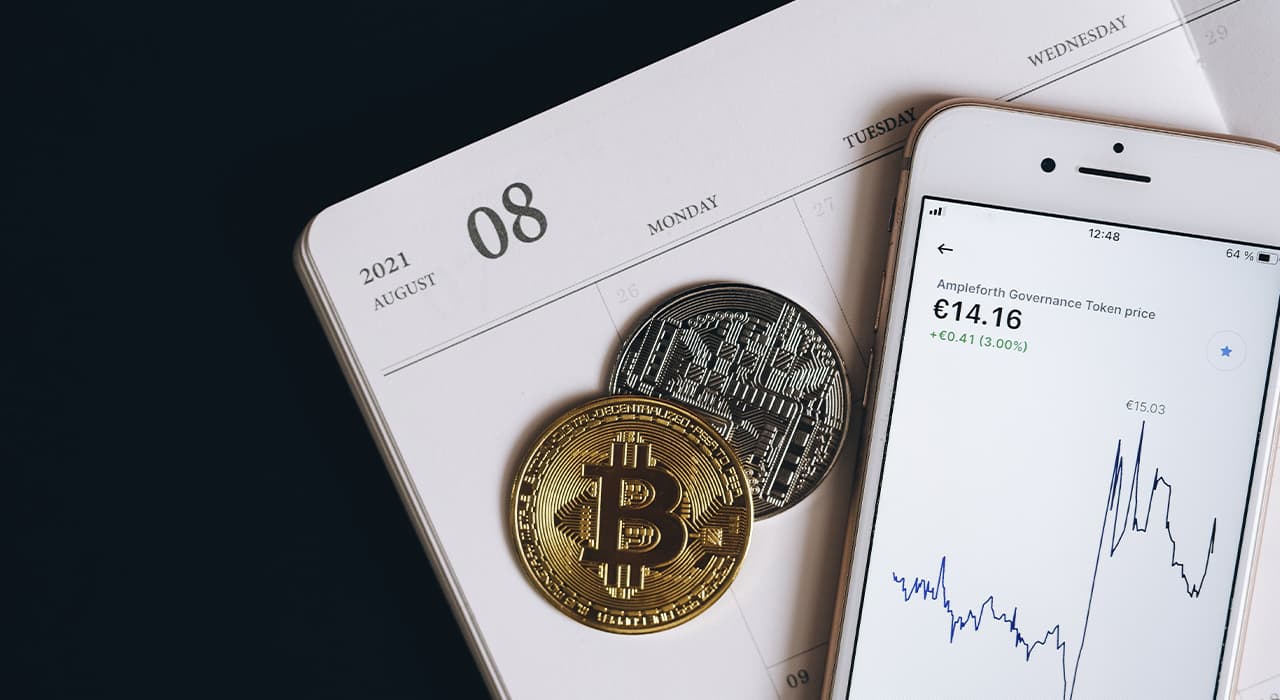Webull, a prominent brokerage platform, is widely recognized for cryptocurrency trading. Despite its popularity, a significant limitation has been its lack of a crypto wallet, hindering users from taking custody of their cryptocurrencies unlike with competitors like Robinhood and eToro. However, Webull has made a promising announcement about introducing a crypto wallet soon. This article aims to provide a comprehensive overview of Webull’s impending wallet launch.
Progress and Features of the Webull Crypto Wallet
The initial announcement of Webull’s wallet plans dates back to June 2022. Since then, there has been noticeable progress. A key motivation for retail customers desiring a Webull wallet is the ability to transfer cryptocurrencies to external addresses. For instance, users may wish to transfer cryptocurrencies to exchanges for trading different tokens or use them as collateral on DeFi platforms like Compound or Maker DAO.
Excitingly, this functionality has now been integrated into the Webull trading app, allowing for cryptocurrency transfers to external addresses. Currently, this service is available for Bitcoin (BTC), Litecoin (LTC), and Bitcoin Cash (BCH), with more options expected in the future. Additional details are available in the guide for Webull Crypto Withdrawals.
Receiving Crypto on Webull
Webull’s capability to receive cryptocurrencies enhances its versatility as a trading platform. To receive digital assets, users must access their main portfolio page, where they can initiate transfers. By selecting the “Receive crypto into Webull” option, they are presented with two crucial pieces of information: the alphanumeric wallet address and a corresponding QR code. This dual-mode of receiving addresses accommodates different user preferences and technologies, ensuring a smooth transfer process.
The current limitation to Bitcoin (BTC), Bitcoin Cash (BCH), and Litecoin (LTC) may seem restrictive, but it covers some of the most widely used cryptocurrencies. This selection caters to a broad range of users, from seasoned traders to those new to the cryptocurrency market. The inclusion of a QR code is particularly user-friendly, enabling quick and error-free transfers. This method is especially advantageous for mobile users who can simply scan the code without the need to manually input the lengthy wallet address.
Once the transfer is initiated, the speed of transaction is notable. Cryptocurrencies transferred to Webull typically appear within an hour, a relatively swift timeframe in the crypto world. This efficiency is crucial for traders who need to react quickly to market changes or who wish to consolidate their assets promptly for strategic reasons. Moreover, this feature signifies Webull’s commitment to providing a comprehensive and accessible trading experience. By facilitating the receipt of popular cryptocurrencies, Webull not only caters to the needs of active traders but also positions itself as an attractive platform for those looking to diversify their investment portfolios. This functionality, coupled with Webull’s user-friendly interface and robust security measures, makes it an appealing choice for both new and experienced cryptocurrency enthusiasts.
The ability to receive cryptocurrencies directly into Webull is a significant step towards enhancing the platform’s utility. It simplifies the process of asset consolidation, expands trading strategies, and demonstrates Webull’s adaptability to the evolving demands of the cryptocurrency market. As the platform continues to grow, the potential expansion of this feature to include more cryptocurrencies could further solidify Webull’s position as a leading trading platform.
Beta and Launch Information
Currently, Webull has not established a waitlisting process for its crypto wallet. The official landing page for the wallet leads to the standard sign-up page. Webull customers should opt-in for communications to stay updated about the wallet launch. Unfortunately, an official release date has not been announced yet.
In a detailed review, the strengths and weaknesses of Webull Crypto Trading are examined, offering an in-depth analysis of the platform.
Enhanced Understanding of Cryptocurrency Operations Between Webull and Other Platforms
- Coinbase and Webull Integration
While direct integration between Coinbase and Webull is currently not a feature, users are not entirely restricted in moving their digital assets between these two platforms. The process involves transferring specific cryptocurrencies – Bitcoin (BTC), Bitcoin Cash (BCH), and Litecoin (LTC) – from one platform to the other. This is particularly useful for traders who wish to leverage the unique advantages of both platforms. For instance, a user might prefer Coinbase for its user-friendly interface and a wider range of cryptocurrencies, while Webull might be favored for its advanced trading features and tools. This interoperability, although indirect, allows users a degree of flexibility in managing their crypto portfolios across different platforms. However, it is important for users to be aware of the potential time delays and network fees that might be incurred during such transfers, as these can vary depending on blockchain congestion and the specific cryptocurrency being transferred.
- Robinhood Crypto Wallet Availability
Robinhood, another major player in the cryptocurrency trading space, made a significant stride by launching its crypto wallet in September 2022. Initially available to iOS users, this wallet extends Robinhood’s functionality, allowing users to store, send, and receive cryptocurrencies directly within the app. This launch marked a pivotal moment for Robinhood users, who previously could only trade cryptocurrencies within the platform without the ability to transfer them to external wallets. For Android users, the anticipation continues as they are currently placed on a waiting list. The introduction of the wallet on Android is expected to broaden the accessibility of Robinhood’s cryptocurrency services, making it a more comprehensive platform for digital asset management.
- Webull Cryptocurrency Trading Fees
Webull’s approach to cryptocurrency trading fees is straightforward but warrants attention for those looking to engage in frequent trading. The platform imposes a 1% markup on all crypto trades, which is a fee added to the price of the cryptocurrency being traded. This fee structure is relatively transparent, allowing traders to calculate the additional cost of their transactions easily. However, while Webull does not charge any fees for transferring cryptocurrencies in or out of the platform, users must be mindful of network fees. These fees are not controlled by Webull but are required by the respective blockchain networks for processing transactions. The amount of network fee can vary based on the cryptocurrency involved and the current demand on the network. For traders who frequently move their assets in and out of Webull, these network fees can accumulate and significantly impact the overall cost of trading. Therefore, it is crucial for users to factor in these fees when planning their trading strategies and managing their cryptocurrency investments on Webull.



